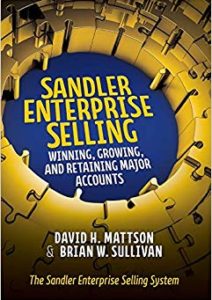Super Bowl LVIII is now history. The hype is dying down, the NFL offseason has begun and thankfully, Taylor Swift has returned to singing. All that said, the Kansas City Chiefs once again sit at the top of the mountain and talk of a KC dynasty is everywhere. And whether or not you’re a Chiefs fan, which I’m not, you have to respect their ability to win on such a consistent basis. Players have come and gone but the Chiefs just keep on winning. Their strategies and fundamentals are so sound that they continue to prevail year after year. And their ability to deploy individual players in the best positions to be successful is uncanny. The way that they assess their opponents is a thing of beauty as are the well-informed decisions they make prior to and during games. And they believe strongly in a concept that they execute with precision. They believe strongly in playbooks.
American football and playbooks. Makes sense. But what about playbooks in sales? How valuable is the time spent on crafting and employing best practices, tactics and strategies throughout the selling process? I’m reminded of the ubiquitous mantra that drove us daily in my early selling career at Xerox. “Plan your work – work your plan”. We all know it well but how can we make it more than just a tag line? How can we make it increase our chances of success? As with the Chiefs in American football, playbooks are fundamental. And in selling as well, truth be told, they are nothing short of a survival skill. Structured and utilized, they dramatically increase your chances of success. According to Aberdeen Research, sales organizations that implement playbooks achieve these benefits:
- Sales cycles are 10% shorter
- 12% more sales reps hit quota
- Revenue growth is 7% higher
Of course, you might say, “We already have a sales process”. Right. Most organizations do. Or they say they do. And whether or not the processes are actually followed, most consist simply of exit checklists or qualification guidelines. While somewhat helpful, in practice they fall short.
So, what’s required? A real sales process and a real playbook – succinctly defined here by Daniel Zamudio, Founder of Playboox and the global thought leader in sales playbooks. “A sales process playbook captures and codifies what your top performers say, ask, do and use at each stage of the sales process to guide all salespeople on how to most effectively initiate, assess, advance, close and grow sales opportunities and enable sales managers to systematically coach their reps to do the same”.
Well said and clearly sales-focused. But as we stand here kicking off 2024, sales focus has morphed in many organizations and taken on a new meaning compared to the days when, as we said at Capgemini, “Sales drives the bus”. While the oft-used term of sales and marketing “alignment” has its value, the unification of sales and marketing can lead to a watering down of direct sales focus. With today’s emphasis on digital marketing, many organizations have internalized the famous Bill Gates’ quote – “Content is king” in terms of their sales playbooks. Daniel relays his concern and guidance in this area saying “The biggest mistake they make is that they think of a playbook as a document. I call this a content management focus, where the focus should be on change management because the purpose of a playbook is to codify and provide guidance on how to most effectively execute each stage of the sales process based on proven deal-winning practices”. Powerful words, for sure, that we need to take note of. Do you think that the Chiefs view their playbook as a document? Of course not. Their playbook provides active focus to directly support operational performance. Paraphrasing Daniel, the Chiefs’ playbook drives “effective execution at each stage”.
Effective execution to win deals. At the end of the day, that’s what it’s all about. It’s not now nor has it ever been about content or documents. So, bring your process to life with a real sales playbook. And like the Chiefs, go win the game!












Comments